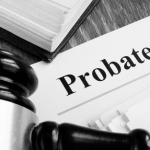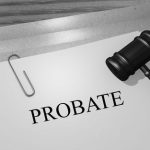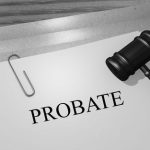One of life’s classic bits of irony; You go through the traumatic experience of losing someone; you go through the process of probating an estate with notice to heirs, notice to creditors, and all the deadlines associated with probate; and you finally close the estate. Let’s assume 10 years later, you realize your dearly departed owned property you had no idea about. Maybe it’s a fractional mineral interest out in the Bakken; maybe the deceased owned a piece of the old family farmstead, or maybe somewhere down the line the deceased was deeded property but was never told about it. While finding out there is more property to go around is generally wonderful news, it can lead to a level of stress and uncertainty in how to handle property once probate is closed. Don’t worry we got you.
1. Time To Open A Probate
Do you still remember the probate process? It is not a fun process. While our team makes every attempt to make the probate process as stress-free and streamlined as possible, probate can still be a stressful and frustrating process at times. Now that you have discovered the deceased had more property, do you have to open another darn probate? Kind of.
2. Subsequent Administration
Both North Dakota and Minnesota have processes called subsequent administration probates. What does this mean? Essentially, these processes allow probate to be opened for the “quicker” and sole purpose of addressing newly discovered property that was only discovered after the original probate was closed. The idea of this process is an in-and-out process designed to piggyback off of the original probate in regards to the deadlines and creditor notices required to be given.
3. Subsequent Administrations And Creditors
Now, you may be wondering if the deceased’s creditors may be entitled to claim a piece of this newly discovered property. It depends. In North Dakota, for example, any previous probate creditor that was not allowed to collect on the debt, due to timing issues or other rules of the court, is not allowed to bring a claim in the subsequent administration. The questions of if a creditor still has a valid claim and the question of when such a claim will be allowed are important questions you will want to discuss with an attorney. Nonetheless, the subsequent administration process is designed to leave past creditors in the past.
This article is intended to give some introductory information concerning an abbreviated probate process of which most people are not aware. There are many facets to this and other probate processes, and you should contact an attorney before proceeding further. Call the SW&L Estate Team at 701-297-2890 or email us below.
The information contained in this article and on this website is for informational purposes only and not for the purpose of providing legal advice. You should contact an attorney to obtain advice with respect to your particular set of facts.










